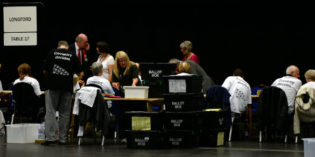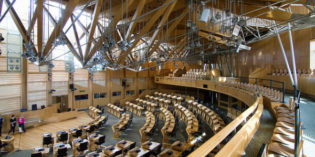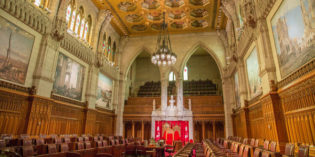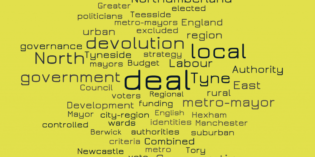Building sub-national government

How majoritarianism endures in the structures of the UK’s devolved institutions
Scotland and Wales’ devolved political institutions, elected under proportional Additional Member electoral systems, were intended to produce a more consensual political culture. However, writes Felicity Matthews, although their electoral rules have increased the proportionality of representation, the structures of the Scottish Parliament and National Assembly for Wales have meant that a more consensual approach to policy-making has been more limited than might have been expected.

England’s local elections: how councillor numbers are being reduced by stealth
Local elections are being held across England on 3 May, but finding out where and for which seats is not always straightforward. Of more concern, writes Chris Game, is that the number of local councillors is gradually being reduced, in a process that lacks transparency, proper scrutiny and a clear, democratic rationale.

Gender and power-sharing – why a Citizens’ Assembly is needed in Northern Ireland
The prospects for Northern Ireland’s power-sharing democracy look bleak. A Citizens’ Assembly is planned for members of the public to deliberate on the disputed topics. Claire Pierson and Jennifer Thomson argue that these forms of public participation have a particular benefit for the representation of women, and has the potential to break down entrenched party political divides.

Brexit means a bleak future for UK public spending and probably for intra-UK governance relations
In the London-centric world of the UK-wide and English media, too little consideration has yet been given to what Brexit means for public spending (almost all of it bad), and for UK-devolved government relations. David Heald explains the need to focus on the long-term important issues.

The UK and Canada: democratic legitimacy could matter more than geographic representation in the upper chamber
Upper chambers have the potential to represent different geographic groups within a multinational state, and so accommodate minority identities. However, research by Mike Medeiros, Damien Bol and Richard Nadeau indicates that, though there is support for democratic reform of the House of Lords and Senate in Scotland and Quebec respectively, there is, in fact, greater support for central democratic reform than for subnational representation.

The prospects for electoral reform in Wales
With the introduction of the Wales Act of 2017, the National Assembly gains significant new powers. As part of this, it can enact its own proposals for electoral reform, including changes to the electoral system and introducing votes at 16. Jac Larner takes a look at what these changes would entail, and the prospects for implementation.

Constitutional change in local government: council backbench committees have the potential to enhance overview and scrutiny
The Wright reforms of the House of Commons’ select committees increased the effectiveness of parliamentary scrutiny in Westminster. Andrew Coulson (Institute of Local Government Studies, University of Birmingham) assesses whether the proposed Betts reforms to local authority oversight and scrutiny committees could do the same for local government.

A mess of pottage? The North of Tyne deal and the travails of devolution
John Tomaney (University College London) focuses on the proposed deal between government and the North of Tyne area. He explains why it fails to meet the government’s own definition of appropriate devolution arrangements, and why local government leaders have nonetheless accepted it.

Politicising national identity: how parties try to define ‘Welshness’ for themselves
The politicisation of national identity in Wales has increased dramatically since devolution. But political parties do not present a common version of ‘Welshness’, writes Sophie Williams. Each party expresses its own version instead, conflating national identity with their own political ideology in the process.



 Democratic Audit's core funding is provided by the Joseph Rowntree Charitable Trust. Additional funding is provided by the London School of Economics.
Democratic Audit's core funding is provided by the Joseph Rowntree Charitable Trust. Additional funding is provided by the London School of Economics.